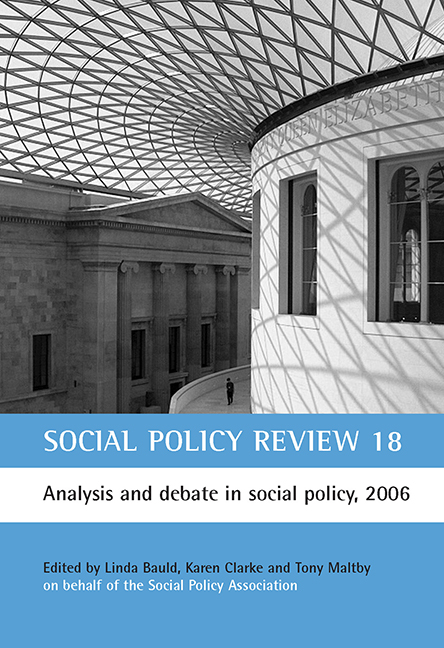six - More than a matter of choice? Consumerism and the modernisation of health care
Published online by Cambridge University Press: 15 January 2022
Summary
Introduction
The current cycles of health service modernisation open up important questions about the future of the welfare state and of the solidaristic citizen identifications with which it is traditionally associated. The figure of the demanding citizen-consumer who strides assertively through the pages of policy documents and the scripts of ministerial speeches stands as a central icon of the current reforms in general, and of the increasing significance of choice in particular. However, alongside choice, notions of ‘challenge’ and ‘responsibility’ inform the modernisation process. ‘Challenge’ is linked to ideas of a newly informed and potentially querulous citizenry – what the Patient Czar termed the ‘standing up’ patients of the future rather than the ‘lying down’ patients of the past (Cayton, 2003). ‘Challenge’ suggests some dismantling of the knowledge–power knot at the heart of professional claims to authority. But this sits somewhat uneasily with notions of ‘responsibility’ that derive from a new articulation of professional and governmental power. Here professional good practice is associated with high levels of patient involvement in treatment decisions, and the ‘responsibilisation’ of patients for their own good health through initiatives such as the expert patient scheme. It denotes a shift of focus from expert-led interventions to greater collaboration with patients, not only in the interests of better health outcomes but also in order to manage resources in a more effective way.
In this chapter we begin by exploring some of the ways in which the ‘consumer’ is situated in New Labour's narrative of modernisation. We then examine how health care organisations are responding to the consumerist imperative, paying particular attention to how they attempt to resolve some of the political and policy tensions that arise. Finally, we examine the new relationships and patterns of identification that are configured in the interface between health services and their publics. The chapter is based on the results from an Economic and Social Research Council (ESRC)/Arts and Humanities Research Board (AHRB)-funded project entitled ‘Creating Citizen-Consumers: Changing Relationships and Identifications’. This project compared how three different public services (primary health care, policing and social care) in two geographically and demographically contrasting areas (here designated as ‘Old Town’ and ‘New Town’) responded to pressures to develop a more consumerist approach (see also Clarke et al, 2005).
- Type
- Chapter
- Information
- Social Policy Review 18Analysis and Debate in Social Policy, 2006, pp. 101 - 120Publisher: Bristol University PressPrint publication year: 2006



